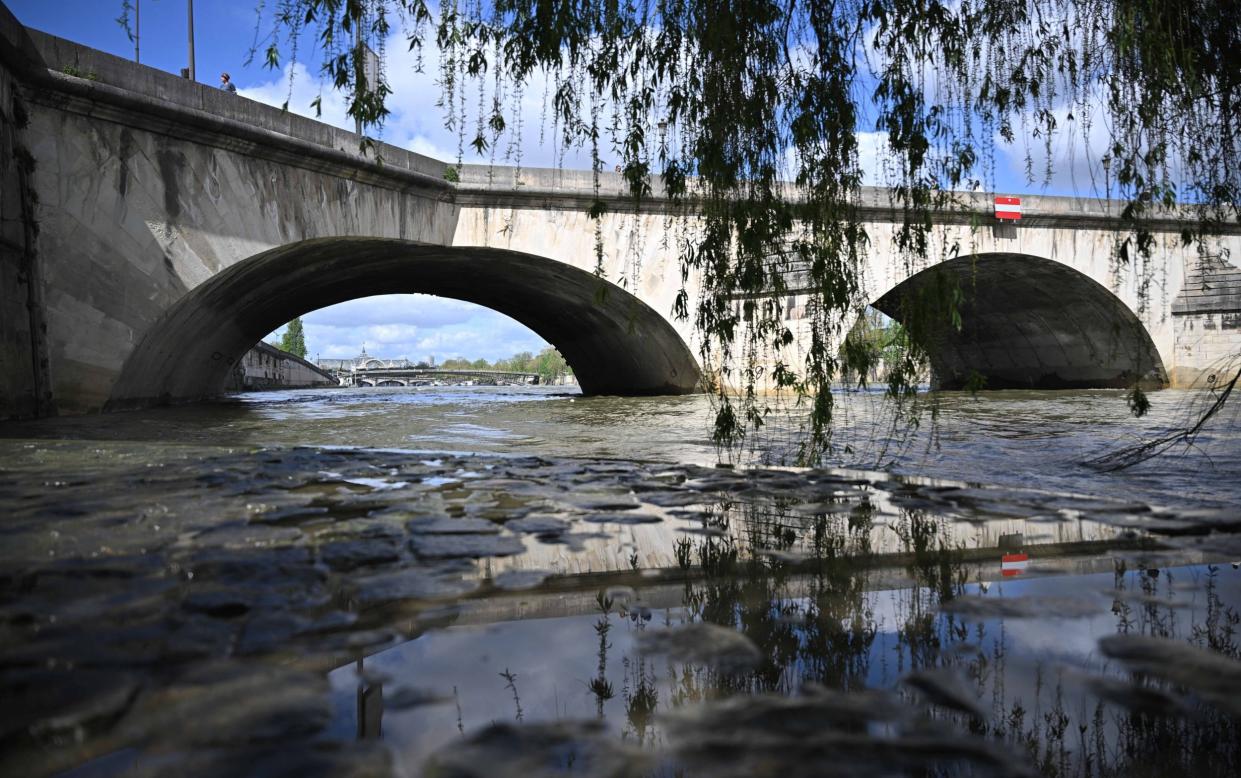Inside the £1bn filter ‘cleaning’ the Seine in Paris – and why it may not work for the Olympics

Glistening in the early spring sunshine, the most romantic river in the world just about looks clean enough to dive into, but only if you squint a little.
This stretch of the Seine in Paris – by Austerlitz railway station on the French capital’s fabled Left Bank – leads up to Notre-Dame cathedral and all the golden bridges where lovers from all over the world embrace.
Soon the waterway will be even more attractive, officials claim, because there is a James Bond-style cavern directly below my feet that is the whooshing hub of a clean-up operation that will allow swimming for the first time in a hundred years.
Not just that, but athletes will actually be racing in the Seine during the Paris 2024 summer Olympics, the government says.
The City of Light is built on impossible myths, but the Austerlitz basin is all about science and – more specifically – an ambitious engineering project costing upwards of £1 billion.
It contains a nexus of pipes and pumps linked to a tank measuring 50m (164ft) in diameter and 30m in depth,
Along with a 700m tunnel, it is capable of holding 13 million gallons of bacteria-laden rainwater, before redirecting it away from the river and to a processing plant, technically leaving a clean Seine.
The plan is to reduce the number of times overflowing sewage is released into the river per year from 12 to just two.
Emmanuel Macron, the president, is so confident it will all work that he has pledged to don his Speedos to be the first in, before a procession of Seine barges take part in the Olympics opening ceremony on July 26.
Amélie Oudéa-Castéra, his sports minister, said this week: “I have confidence in the ambitious action plan – one that cost €1.3 billion (£1.1 billion) – and which has been going on for three years.”
But there are already plenty of problems threatening the astonishingly expensive project.

Environmentalists are still picking up dangerous levels of E-coli and intestinal enterococci in the water, and pre-Olympic events are regularly being cancelled.
Worst of all, officials involved in Operation Swim, as it is informally dubbed, know as well as anybody else that – like King Canute – they cannot do anything about nature.
It will only take a few summer storms to ensure that the work of the Austerlitz basin is deemed redundant.
“There is no guarantee it will work following excessive amounts of rain,” an official at Paris’s city hall – the Hotel de Ville – told The Telegraph.
“Yes, there can be a lot of rain in Paris during the summer, and – yes – all the expense and work could be put in jeopardy.”
Race officials have already mooted postponing triathlon events after heavy rainfall.
The reason for this glum prospect can be explained relatively simply – excessive amounts of storm water will overburden the Austerlitz complex, just as it has been leaving Paris’s ancient sewer system unable to cope for decades.
Specifically, one of the biggest engineering projects in the recent history of Paris may not be big enough, despite being able to hold enough water to fill 20 Olympic-size swimming pools.
Such unpredictability is also evident in other aspects of Operation Swim, which extends to four other sites in the suburbs that are trying to regulate the city’s sewers and waterways.
Notoriously irresponsible populace
They are areas that have suffered from reckless industrialisation and a notoriously irresponsible populace.
It was not so long ago that mortuaries were tipping dead bodies into the Seine, for example, while revellers still regularly dump all their left-overs, from wine bottles to electronic scooters, into the river.
Locals still object to a lot of the work that is going on, especially when council teams ask if they can dig up their pipes.
Some 20,000 property owners who currently eject their toilet and kitchen water straight into the Seine, or its tributary, the Marne, have been approached, but many say no.
This is even the case when people are offered grants worth the equivalent of around £5000 for the renovation work.
Recommended
Paris Olympics 2024: Everything you need to know
Samuel Colin-Canivez, who is in charge of sewage projects for the city hall, said there was no attempt to “purify the Seine” but simply to stop untreated water from “being dumped into the river”, as has been happening for far too long.
Whatever the objective, there was certainly not massive confidence shown in the clean-ups by Parisians I spoke to on the Seine quay.
Noleene N’owessem, 20, a student, said: “I have to admit, the water doesn’t look very attractive right now, and I can’t see it improving much in the next few months. I certainly won’t be going for a swim.”
Louis Ortega, 63, and owner of one of the famous “bouquiniste” bookstores on the banks of the Seine, was a bit more optimistic, saying he “might have a dip” if everybody else did.
Mr Ortega added: “It’s all a question of how successful the basin is. If the Olympic swimmers all go in, then I imagine lots of other people will follow. If it all goes wrong, then a great deal of money will have been wasted.”


 Yahoo News
Yahoo News 
